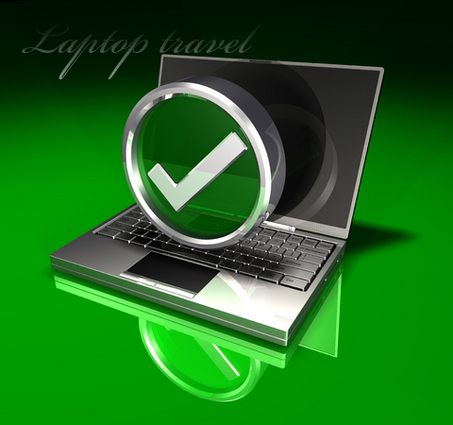Tips for a safe and secure trip with your laptop
Each week, 12,000 laptops are lost or stolen in U.S. airports adding up to some 630,000 a year, according to a study commissioned by the computer maker Dell. The study, which focused on business travelers, reported that the highest rate of loss was in large airports, such as Los Angeles, where 1,200 laptops are lost or stolen each week.
Of those stolen or lost, only 33 percent are recovered (17 percent before flight and 16 percent after), according to the study. Business travelers report that losses most frequently occur at airport security checkpoints or departure gates. Most travelers report that they had confidential or business sensitive data on their laptops, though only 35 percent said data was protected, even if only by a login and password. In 42 percent of cases, the data on the missing laptop had not been backed up.
Loss or theft is not the only problem travelers with laptops may encounter. A NNSA cyber incident was reported in December when an employee's laptop was inadvertently swapped with another during screening at an airport security checkpoint. Both carrier cases were identical in appearance and the exchange went unnoticed until the employee got to work. The other passenger returned home to Canada with the NNSA laptop.
Recommendations for reducing the risk of loss or theft of laptops and valuable data include:
- Think about whether taking a laptop on travel is absolutely necessary.
- Label your laptop and provide full contact information. Lab employees also are reminded that a property pass is required for taking LLNL equipment off site. Putting contact information inside the battery bay is a good way to label the laptop. Airport security knows to look there, and it is not visible to the casual observer.
- Allow enough time to avoid mistakes made more likely by having to hurry. Airports are a physical and mental obstacle course.
- Carry less and think ahead to avoid having to track a multiplicity of carry-on luggage when passing through airport screening.
- Take appropriate security measures. Encrypt sensitive information and always back up your system.
- Think carefully about the information you carry on your laptop. Do you really need all that information? What would be the consequences if it was lost? Make sure protection measures are commensurate with the data classification. Consult your organizational information system security officer (OISSO).
- Report lost or stolen property to your organization's property representative.
- Lab employees should report the loss of Unclassified Controlled Information (UCI) information to Office of Classification & Export Control (OCEC) or Security Incidents Report Office (SIRO).
- Unencrypted Personally Identifiable Information (PII) on a laptop or other portable media that is lost must be reported to the Cyber Security Program.
- LLNL portable computers taken on foreign travel must be inspected prior to and upon return from travel by the Security Department's Physical & Technical Security Group (P&TSG). LLNL is currently working on implementing new procedures to establish a laptop pool for use when on foreign travel.
For other laptop and cyber security questions, contact your organizational information system security officer (OISSO).






